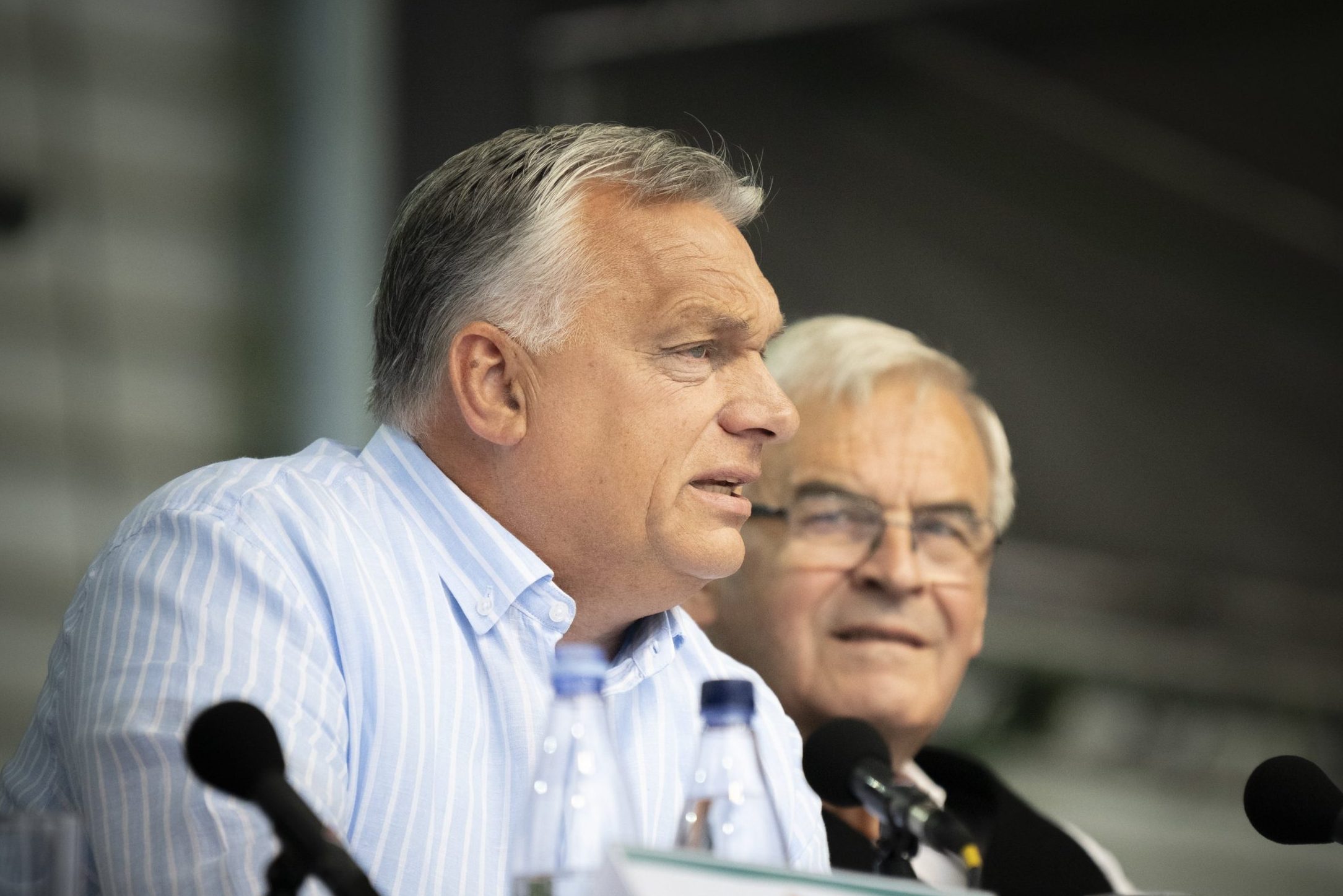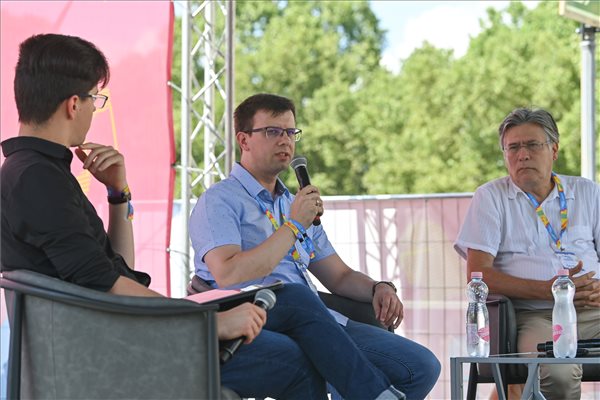
The speech was delivered in Romania's Bálványos Summer Free University.Continue reading

It is not in the interest of the Hungarian government to maintain a conflict with the European Union, only the EU institutions benefit from it, the Secretary of State for EU Affairs of the Ministry of Justice said on Saturday in Esztergom (northern Hungary).
Speaking at the MCC Fest panel discussion organized by Mathias Corvinus Collegium, János Bóka compared the EU institutions to a crisis factory, because, he said, they have always emerged stronger from crises, at the expense of the autonomy and powers of the Member States.
“This should also be pointed out to the partners,” said his debate partner István Szent-Iványi, head of the Department of International Relations and European Studies at the Kodolányi János University. According to him, Prime Minister Viktor Orbán’s recent speech in Tusványos, blaming Brussels and “his harshly critical tone,” does not reflect that the Hungarian government has no interest in maintaining conflict with the EU.
According to Bóka, the European Commission, the net contributor states, and the domestic opposition are in the interest of the conflict and are the causes of the current situation. He emphasized
that the conflict between the Commission and the Hungarian government stems from differing views on the nature and functioning of the EU and the Commission’s “political” role. The conflict is not a sign of our lack of capacity to assert our interests, but of our principled position.”

Mátyás Kohán, foreign policy journalist, moderator, János Bóka, Minister of State for European Union Affairs at the Ministry of Justice, future Minister for European Union Affairs and István Szent-Iványi, Head of the Department of International Relations and European Studies at Kodolányi János University, former Member of the European Parliament (L-R)
According to István Szent-Iványi, the approach that everyone is to blame but us does not work. “There is really no opposition,” he added, saying that the parties also want Hungary to get EU funds, but they say it matters at what price.
The two debating partners agreed that leaving the EU is not realistic, and János Bóka stressed that “the issue does not exist, (…) nobody argues about it, nobody talks about it.”
According to Szent-Iványi, the risk of the country drifting away from the EU institutions and losing influence is much more real, citing the Visegrád countries (V4 – Slovakia, the Czech Republic, Poland, and Hungary) as an example, that he said had become “a non-starter.”
Bóka, on the other hand, pointed out that
the V4 alliance had “just recently shown strong signs of life” on migration issues and in rejecting the uncontrolled inflow of Ukrainian agricultural products.
Szent-Iványi countered that after Orbán’s speech in Tusványos, almost all the neighboring countries expressed their displeasure. He said that in six years Hungary had used 60 percent of all vetoes in EU affairs, which he said showed the country’s weak ability to assert its interests, because “vetoes are the weapon of the weak.”
Via MTI, Featured photo via Pixabay